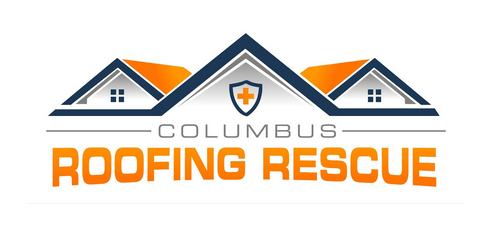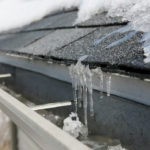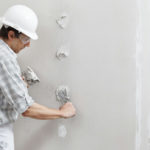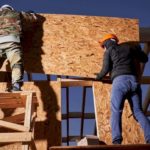
Why Does My Roof Only Leak Sometimes
Have you ever been frustrated by a leaking roof? If so, you may have noticed that the issue doesn’t occur consistently. This can be a confusing problem for homeowners. In this article, I will cover the most common causes of roof leaks, how weather conditions can impact your roof, and provide tips for identifying the source of your roof leak. I will also offer some DIY solutions for fixing the leak and advise when to hire a professional roofer. Let’s dive in!
Roof leaks are often caused by damage or deterioration. The lifespan of your roof depends on the material, quality of installation, and maintenance. Over time, exposure to the elements can lead to cracks and holes, allowing water to seep into your home. Poor ventilation is also a common cause, as moisture buildup can damage your roof and compromise its integrity. This can result in issues such as rot and mold.
Lastly, clogged gutters can also cause roof leaks. When gutters are clogged, water can accumulate on your roof and seep into your home, and this can cause damage to your roof and lead to leaks.
Understanding Weather Patterns and Their Impact on Roof Leaks
Weather patterns can have a big impact on your roof’s performance. Heavy rain, snow, and wind can cause damage to your roof, leading to leaks. Additionally, extreme heat can cause your roof to expand and contract, eventually causing cracks and leaks.

Pay attention to weather patterns to identify potential issues with your roof is essential. If you notice leaks after heavy rain or snow, your roof will likely be compromised. Similarly, if you see leaks during extreme heat, it may be a sign that your roof is expanding and contracting too much.
Identifying the Root Cause of Your Roof Leak
Identifying the root cause of your roof leak can be challenging, but it’s essential to do so to fix the problem correctly. One way to identify the root cause is to inspect your roof for any visible damage, such as cracks, holes, or missing tiles. If you notice any damage, this is likely the cause of your leak.
Another way to identify the root cause of your leak is to inspect your attic for any signs of moisture or water damage. If you notice any wet insulation, mold, or water stains, your roof will likely leak in that area.
Lastly, paying attention to the timing and location of your leaks is important. If your roof only leaks during heavy rain or wind, the issue is likely related to weather patterns. However, if your roof leaks consistently in the same location, there’s probably a specific issue with your roof that needs to be addressed.
How to Find a Roof Leak – Tips and Tricks
Finding a roof leak can be challenging, but several tips and tricks can help make the process easier. One way to find a leak is to use a hose to simulate rain. Start by spraying water on the roof in one area and wait for the water to seep into your home. Move the hose to different roof areas until you find the source of the leak.

Another way to find a leak is to inspect your roof during the day. Look for any areas where sunlight is shining through your roof. This can indicate a hole or crack that needs to be addressed. Lastly, inspecting your attic for any signs of moisture or water damage is important. This can help you identify the location of the leak and the root cause of the issue.
DIY Methods to Fix Your Roof Leak
If you’re comfortable working on your roof, you can use several DIY methods to fix your roof leak. One way to fix a leak is to apply roofing cement to the damaged area, which can help seal any cracks or holes and prevent water from seeping into your home.
Another DIY method is to replace damaged shingles
This can be done by replacing the damaged material with new shingles or tiles. Lastly, cleaning your gutters regularly is important to prevent clogs and water damage, and this can help prevent future leaks and extend the life of your roof.
When to Call in a Professional Roofer
While DIY methods can be effective for fixing roof leaks, there are times when it’s best to call in a professional roofer. If you’re uncomfortable working on your roof or unable to identify the root cause of the leak, it’s best to call in a professional. Additionally, if your roof is old or severely damaged, it may be time for a new roof. A professional roofer can inspect your roof and provide recommendations for repair or replacement.
Preventing Future Roof Leaks – Maintenance & Up keep Tips
Preventing future roof leaks is important to protect your home and extend the life of your roof. One way to prevent leaks is to schedule regular maintenance and inspections, and this can help identify some issues before they become major problems.
Additionally, it’s important to keep your gutters clean and debris-free, and this can help prevent clogs and water damage. Lastly, addressing any issues with your roof as soon as they arise is important. Ignoring minor issues can lead to major problems and costly repairs.
Roof Leak Repair Costs
The cost to repair a roof leak can vary depending on the issue’s severity and the leak’s location. DIY methods can be cost-effective, but weighing the cost of materials and your time against the potential risks and benefits is important.
Professional roof repair costs can also vary depending on the damage’s extent and the leak’s location. Getting several quotes from reputable roofers is essential to ensure you’re getting a fair price for the repair.
Conclusion – Taking Action to Fix Your Roof Leak
Roof leaks can be a frustrating and costly issue for homeowners. However, by understanding the common causes of leaks, identifying the root cause of your issue, and taking steps to prevent future leaks, you can protect your home and extend the life of your roof. Whether you choose to tackle the problem yourself or call in a professional roofer, taking action to fix your roof leak is important for the health and safety of your home.



